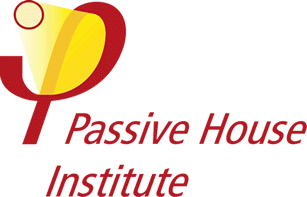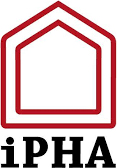During the Corona pandemic, schools in Germany must ventilate their classrooms regularly in order to reduce the risk of infection. Schools which are equipped with a heat recovery ventilation system,including Passive House schools,offer significant benefits for their users.© Pixabay
Passive House Institute about schools: ventilation systems offer major advantages
Darmstadt, Germany. With the start of the cold season, attention is increasingly shifting to schools and the question of how the risk of infection with theSars-CoV-2 virus in classrooms maybe reduced. The German Environment Agency recommends frequent air replacement;in schools that do not have ventilation systems,this air exchange should be achieved by opening the windows. The German Environment Agency expressly advises against mobile air purification units as a substitute for ventilation with fresh air. These mobile appliances should only be used in addition to active ventilation. The Passive House Institute endorses this recommendation and draws attention to the advantages of a ventilation system with heat recovery.
Fresh air mandatory
According to a recent publication from the German Environment Agency, the likelihood of high concentrations of infectious particles existing in classrooms is very high due to the rooms’ low air volume in relation to the high number of individuals. “Because most schools in Germany are not equipped with a central ventilation system, air exchange via the windows is the best and often the only way to let fresh air into the classroom,” explains the German Environment Agency (UBA).
Removing infectious particles
According to the recommendations of the UBA, in the cold season,the rooms should be aired every 20 minutes for3 to 5 minutes, in the summer for10 to 20 minutes. With this ventilation,not only infectious particles but also moisture, particulate matter and carbon dioxide (CO₂)will be removed.
Air purifier no substitute for ventilation
In contrast, mobile air purification units usually are not able to quickly and reliably eliminate viral particles in the indoor air, especially in densely occupied classrooms, according to the German Environment Agency. In addition, they cannot remove CO₂ or moisture.Therefore mobile air purification units are only helpful in addition to active ventilation. The UBA goes even further and claims that if a room cannot be properly ventilated,it is unsuitable for school lessons.
Only additionally
The Passive House Institutes hares the view of the German Environment Agency and, at the same time,draws attention to the advantages of a ventilation system with heat recovery. According to the Institute, in buildings which do not have a ventilation system with adequate supply air, the only other possible alternative is ventilation via the windows. Professor Wolfgang Feist also emphasises that mobile air recirculation units are no substitute for ventilation with fresh air. Although using these recirculating air purifiers may certainly reduce the risk of infection when used as an additional measure,since they reduce the number of suspended matter which can transport viruses. For this, however, they must be equipped with HEPA filters that only trained personnel with personal protection equipment can replace and dispose.
“Air purifiers do not supply fresh air”
In addition, air recirculation units cannot be a substitute for proper ventilation.The founder of the Passive House Institute explains: “Thorough airing of a classroom is still necessary even with a mobile air recirculation unit. Air purifiers simply recirculate the air;they do not supply any fresh air from the outside. Not all pollutants in the room are trapped by the filters of these air purifiers; CO₂and radon gas are among these,”emphasises Professor Wolfgang Feist. More than thirty years ago, the founder of the Passive House Institute developed the Passive House concept and,together with his family,he built the world’s first Passive House building in Darmstadt. Ever since then,he has been studying the air quality and hygiene aspects of ventilation systems
Ventilation systems reduce the risk
In schools which are equipped with a controlled ventilation system with heat recovery, including those schools built to the Passive House standard, the risk of infection is automatically minimized, according to Feist. “Due to the high-quality fresh air filters in these ventilation systems,as recommended by the Passive House Institute,the danger from dust particles and aerosols is greatly reduced,” he explains. The ventilation system also ensures a constant supply of pure, fresh outdoor air. At the same time, the heat in the extracted air is used to preheat this fresh air which furthermore prevents unpleasant draughts.
Ventilation systems make it easy”
To reduce the risk of infection, in Passive House schools only the air exchange rate of the ventilation system must be increased as far as possible. This will achieve at least the same effect as in schools without ventilation systems that use window ventilation,but without the interruption of lessons and temperature drops,” explains Dr Berthold Kaufmann. Kaufmann is a scientific staff member of the Passive House Institute and father of school children, making him familiar with the current situation in schools.He also points out that the mobile air purification units that are now often being acquired by schools,give teachers, students and parents a false sense of security: these alone do not reduce the risk of infection significantly.
Retrofitting makes sense
Professor Rainer Pfluger of the University of Innsbruck, Austria,works closely with the Passive House Institute. Like the Institute in Darmstadt, he too regards the retrofitting of decentralised ventilation systems in schools as an appropriate measure:”There are solutions available in which the pipes for outdoor air and exhaust air pass through a window casement fitted with a panel. This eliminates the need to drill holes through the exterior wall,” says Pfluger.
Masks essential
Regardless of whether schools are equipped with a ventilation system, ventilate via open windows or have a mobile air purifier, the Passive House Institute stresses that the wearing of masks continues to be essential: this reduces the risk posed by larger droplets which can directly affect others and which contain high viral loads.
Discussing air humidification
The Passive House Institute also draws attention to another important aspect: during ventilation in winter,the indoor air is diluted with cold and therefore dry outdoor air, resulting in dry indoor air. According to the Passive House Institute, the problem of low air humidity due to increased ventilation requires greater attention. This affects all classrooms irrespective of whether increased fresh air is supplied to these rooms via window ventilation or through a ventilation system.Ventilation systems with moisture recovery have already mitigated this problem, explains the Institute in Darmstadt. However, air humidification may constitute an essential aspect for school operations in winter, especially incurrent times with Covid-19. According to the Passive House Institute, this has not been discussed sufficiently yet.
Like this:
Like Loading...


























